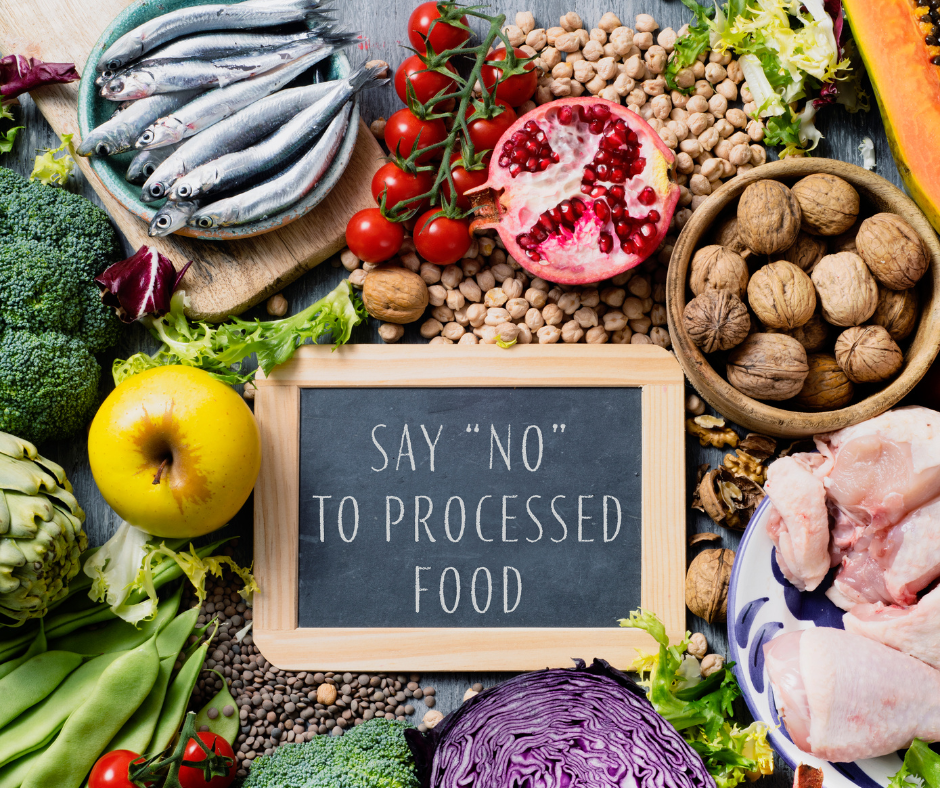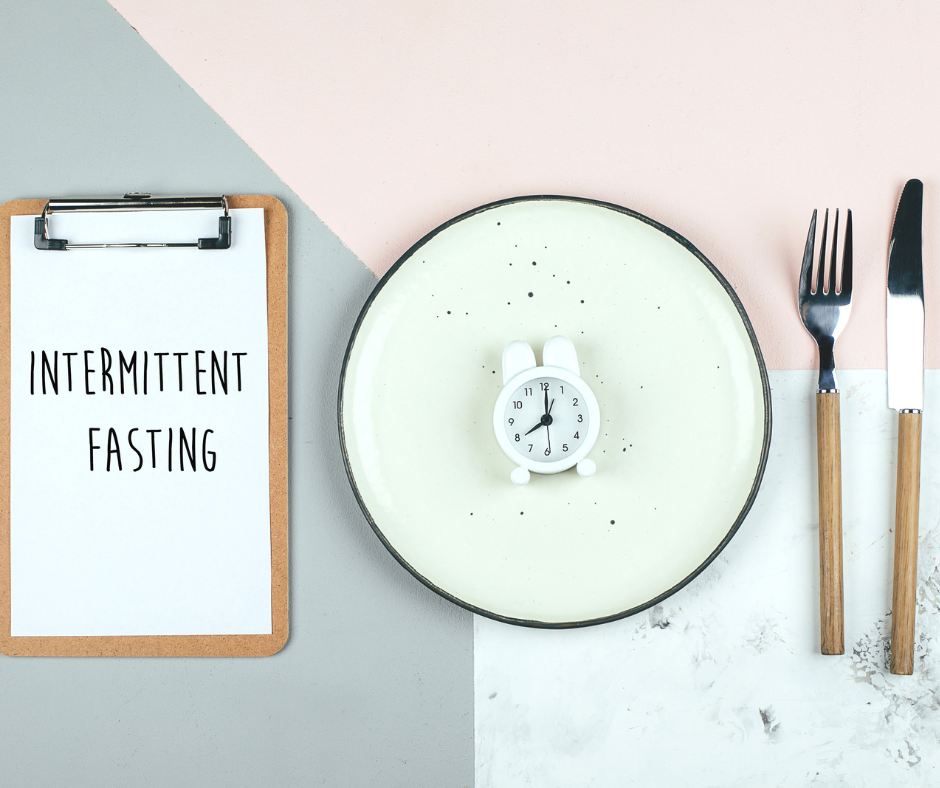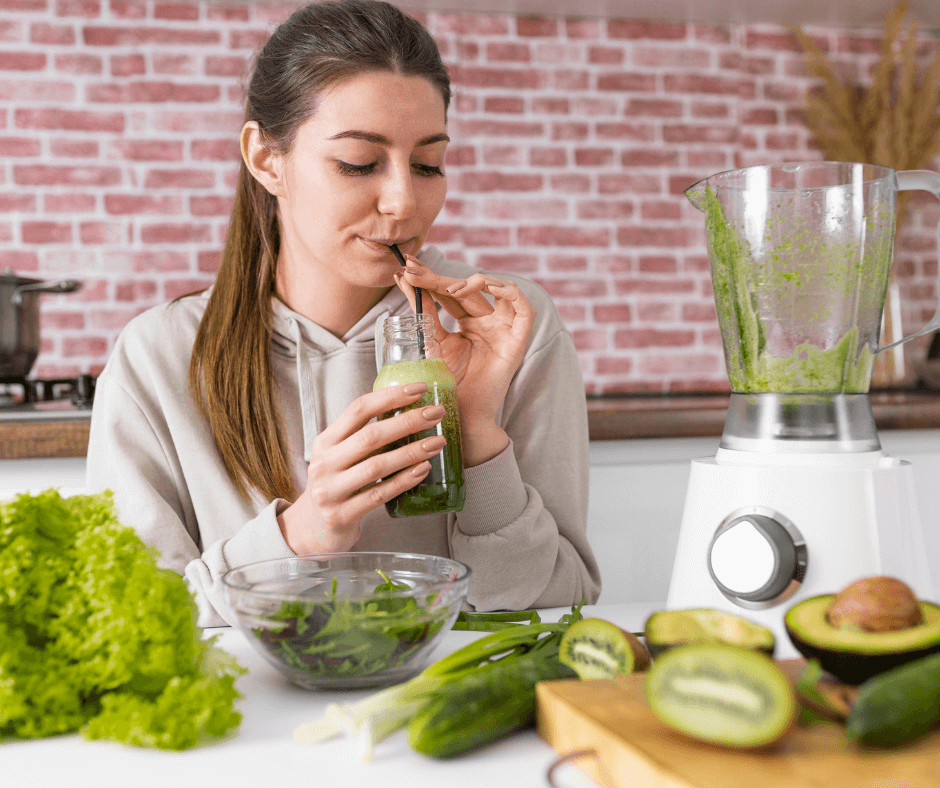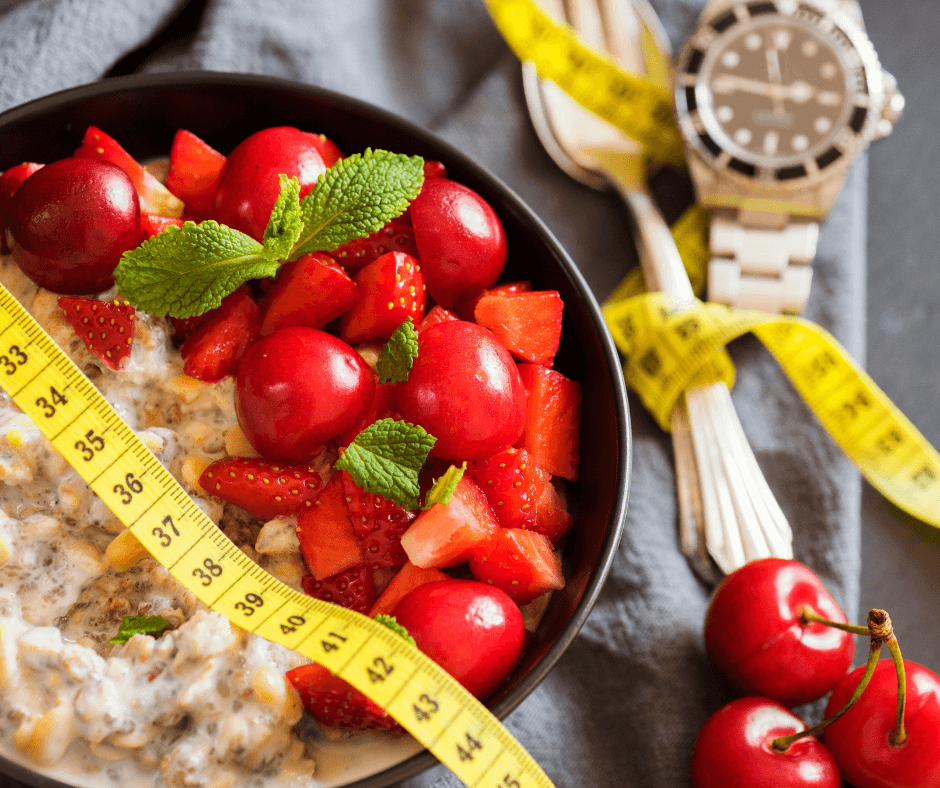|
Feeling sluggish and fatigued is a common problem that many of us face, especially when we're constantly on the go. However, one of the best ways to combat fatigue and increase energy levels is to consume a healthy and balanced diet. Fruits are a great source of natural energy and essential vitamins that can help fight fatigue and keep you energized throughout the day. In this article, we will discuss ten fruits that can help boost your energy levels and fight fatigue. Bananas: Bananas are a great source of natural energy as they are rich in carbohydrates, potassium, and vitamin C. They are also easy to digest, making them a great snack before a workout or a long day ahead. Bananas are also known to regulate blood sugar levels, which can help prevent fatigue and keep your energy levels stable throughout the day. Apples: Apples are high in fiber, which helps slow down the absorption of sugar into the bloodstream, preventing energy crashes. They are also rich in antioxidants, which help fight off free radicals and keep your immune system strong. Oranges: Oranges are packed with vitamin C, which is essential for boosting the immune system and fighting fatigue. They are also high in fiber, which can help regulate blood sugar levels and prevent energy crashes. Blueberries: Blueberries are a great source of antioxidants, which help fight off free radicals and reduce oxidative stress in the body. They are also rich in vitamin C and fiber, making them a great choice for boosting energy levels and preventing fatigue. Kiwi: Kiwi is packed with vitamin C, fiber, and potassium, making it a great fruit for boosting energy levels and fighting fatigue. Kiwi also contains an enzyme called actinidin, which helps break down protein, making it easier to digest and absorb nutrients from food. Pineapple: Pineapple is rich in bromelain, an enzyme that helps break down protein and aids in digestion. It is also high in vitamin C and manganese, which help boost energy levels and fight fatigue. Watermelon: Watermelon is high in water content, making it a great fruit for staying hydrated and boosting energy levels. It is also rich in vitamins A and C, which help fight off free radicals and keep the immune system strong. Pomegranate: Pomegranates are packed with antioxidants, which help fight off free radicals and reduce oxidative stress in the body. They are also high in fiber and vitamin C, making them a great choice for boosting energy levels and preventing fatigue. Mango: Mangoes are high in natural sugars, making them a great choice for boosting energy levels. They are also rich in vitamins A and C, which help fight off free radicals and keep the immune system strong. Grapes: Grapes are high in natural sugars and are a great source of quick energy. They are also rich in antioxidants, which help fight off free radicals and reduce oxidative stress in the body. Incorporating these ten fruits into your diet can help boost your energy levels and fight fatigue. Not only are they packed with essential vitamins and minerals, but they are also a great source of natural sugars, which can provide quick energy when you need it the most. So, the next time you're feeling sluggish, reach for one of these fruits instead of reaching for an energy drink or a sugary snack. Your body will thank you for it in the long run.
0 Comments
Do you find yourself constantly feeling tired and sluggish, even after getting a full night's rest? You're not alone. Fatigue is a common problem that many people face, but fortunately, there are some simple dietary changes you can make to increase your energy levels and combat fatigue. In this article, we'll explore 10 superfoods that can help you feel more energized and less fatigued. Blueberries Blueberries are a delicious and nutritious superfood that can help boost your energy levels. They are rich in antioxidants and have been shown to improve cognitive function, including memory and focus. They also contain fiber and vitamin C, which can help support your immune system. Spinach Spinach is a leafy green superfood that is packed with nutrients, including iron, which is essential for energy production. It also contains vitamins A and C, folate, and magnesium, all of which can help reduce fatigue and increase energy levels. Almonds Almonds are a great source of healthy fats, protein, and fiber, which can help keep you feeling full and energized throughout the day. They also contain magnesium, which plays a key role in energy production. Salmon Salmon is a fatty fish that is rich in omega-3 fatty acids, which can help reduce inflammation and improve brain function. It is also a good source of protein and vitamin B12, which can help reduce fatigue and increase energy levels. Sweet Potatoes Sweet potatoes are a nutritious and delicious superfood that are rich in complex carbohydrates, fiber, and vitamins A and C. They provide a slow and steady release of energy, which can help prevent blood sugar spikes and crashes that can lead to fatigue. Quinoa Quinoa is a gluten-free grain that is rich in protein, fiber, and a variety of vitamins and minerals, including magnesium and iron. It is also a low glycemic index food, which means it can help keep your blood sugar levels stable and prevent energy crashes. Greek Yogurt Greek yogurt is a creamy and delicious superfood that is high in protein, which can help keep you feeling full and energized. It also contains calcium, which is essential for healthy bones and can help reduce fatigue. Green Tea Green tea is a superfood that is rich in antioxidants and caffeine, which can help increase alertness and improve cognitive function. It also contains theanine, an amino acid that can help reduce stress and improve mood. Bananas Bananas are a convenient and delicious superfood that are rich in potassium, which can help regulate blood pressure and reduce fatigue. They are also a good source of fiber and vitamin C, which can help support your immune system. Dark Chocolate Dark chocolate is a delicious superfood that is rich in antioxidants and can help improve brain function. It also contains caffeine, which can help increase alertness and reduce fatigue. Incorporating these 10 superfoods into your diet can help increase your energy levels and reduce fatigue. They are easy to find at your local grocery store and can be incorporated into a variety of meals and snacks. Remember to also prioritize getting enough sleep, staying hydrated, and engaging in regular physical activity to further boost your energy levels and combat fatigue. As we go through our daily lives, it’s common to experience tiredness and fatigue. However, if you’re constantly feeling tired and it’s affecting your ability to perform everyday tasks, you might be dealing with a more serious condition: Chronic Fatigue Syndrome (CFS). CFS is a debilitating condition that affects millions of people worldwide. The symptoms can range from mild to severe, and it can be difficult to find relief. While there is no cure for CFS, there are natural ways to combat the symptoms and improve your quality of life. In this article, we’ll explore 10 natural ways to combat Chronic Fatigue Syndrome. Get Enough Sleep One of the most important things you can do to combat CFS is to get enough sleep. While it’s important to aim for 7-9 hours of sleep each night, it’s also important to maintain a consistent sleep schedule. Try to go to bed and wake up at the same time every day, even on the weekends. Exercise Regularly Regular exercise can help improve your energy levels and reduce fatigue. While it might seem counterintuitive to exercise when you’re feeling tired, gentle exercise such as walking or yoga can be beneficial. Eat a Balanced Diet Eating a balanced diet can help ensure that your body is getting the nutrients it needs to function properly. Focus on eating a variety of fruits, vegetables, whole grains, and lean proteins. Stay Hydrated Dehydration can lead to fatigue, so it’s important to drink enough water throughout the day. Aim for 8-10 glasses of water each day, and be sure to drink more if you’re exercising or if it’s hot outside. Reduce Stress Stress can exacerbate the symptoms of CFS, so it’s important to find ways to manage stress. Meditation, yoga, and deep breathing exercises are all effective ways to reduce stress. Take Breaks If you’re feeling fatigued, taking breaks throughout the day can help. Take a 10-15 minute break every hour or so to stretch, move around, or just rest your eyes. Avoid Stimulants While stimulants like caffeine and sugar can provide a temporary energy boost, they can also lead to crashes and worsen fatigue in the long run. Try to limit your consumption of these substances. Supplement Your Diet Certain supplements such as vitamin B12 and magnesium can help combat fatigue. Talk to your healthcare provider about which supplements might be right for you. Practice Good Sleep Hygiene In addition to getting enough sleep, it’s important to practice good sleep hygiene. This means creating a sleep-conducive environment by keeping your bedroom dark, quiet, and cool. Seek Support Dealing with CFS can be isolating, but you don’t have to go through it alone. Join a support group, talk to friends and family, or seek professional help if you’re struggling. Living with Chronic Fatigue Syndrome can be challenging, but there are natural ways to combat the symptoms and improve your quality of life. By getting enough sleep, exercising regularly, eating a balanced diet, staying hydrated, reducing stress, taking breaks, avoiding stimulants, supplementing your diet, practicing good sleep hygiene, and seeking support, you can manage your symptoms and feel better. Remember, it’s important to work with your healthcare provider to develop a personalized treatment plan that works for you. In today's fast-paced world, it's easy to grab a quick snack or meal on the go. Unfortunately, many of these convenient options come in the form of processed foods, which are often packed with unhealthy additives and preservatives. While they may seem like a convenient option, consuming too many processed foods can have serious consequences for your health.
What are Processed Foods? Processed foods are any foods that have been altered in some way from their natural state. This can include things like adding preservatives to extend shelf life, adding sugar or salt to enhance flavor, or using chemical processes to modify texture or color. Common examples of processed foods include canned goods, frozen dinners, and snack foods like chips and cookies. Why are Processed Foods Dangerous? While some processing is necessary to make food safe and edible, excessive processing can lead to a variety of health problems. Here are just a few of the dangers of consuming too many processed foods:
What are Some Alternatives to Processed Foods? If you're looking to reduce your consumption of processed foods, there are plenty of healthy alternatives to choose from. Here are a few ideas to get you started:
While processed foods may be convenient, they can have serious consequences for your health. By choosing whole foods, cooking at home, and reading labels carefully, you can reduce your consumption of processed foods and improve your overall health and well-being. Remember, the food you put in your body has a direct impact on your health, so choose wisely! In today's fast-paced world, mental fatigue has become a common problem. With the increase in workload and stress levels, it is essential to take care of our mental health. A healthy diet is crucial for good mental health. Certain foods are known to boost brain energy and help fight mental fatigue. In this article, we will discuss 10 such foods that you can add to your diet to improve your mental health. Blueberries: Blueberries are known to improve cognitive function and protect the brain from oxidative stress. They are rich in antioxidants, which can help to reduce inflammation and promote healthy brain function. You can add blueberries to your morning cereal or smoothie to get a dose of brain-boosting goodness. Nuts and seeds: Nuts and seeds are a great source of healthy fats, protein, and minerals. They also contain antioxidants and other nutrients that can help to improve brain function. Walnuts, almonds, pumpkin seeds, and sunflower seeds are some of the best nuts and seeds for brain health. Salmon: Salmon is rich in omega-3 fatty acids, which are essential for brain health. Omega-3s can help to reduce inflammation, improve mood, and enhance cognitive function. You can add salmon to your diet by grilling, baking, or broiling it. Dark chocolate: Dark chocolate is a rich source of flavonoids, which can improve cognitive function and reduce mental fatigue. It also contains caffeine, which can help to improve alertness and concentration. You can enjoy a small piece of dark chocolate as a midday snack to boost your brain energy. Eggs: Eggs are an excellent source of protein and contain choline, a nutrient that is essential for brain function. Choline can help to improve memory and cognitive function. You can add eggs to your diet by boiling, scrambling, or frying them. Avocado: Avocado is a rich source of healthy fats, vitamins, and minerals. It also contains antioxidants, which can help to reduce inflammation and improve brain function. You can add avocado to your diet by spreading it on toast or adding it to your salad. Green tea: Green tea is rich in antioxidants and contains caffeine, which can help to improve brain function. It can also help to reduce mental fatigue and improve mood. You can enjoy a cup of green tea in the morning or afternoon to boost your brain energy. Berries: Berries are rich in antioxidants and contain flavonoids, which can help to improve cognitive function and reduce mental fatigue. Strawberries, raspberries, and blackberries are some of the best berries for brain health. You can add berries to your diet by adding them to your smoothie or yogurt. Broccoli: Broccoli is a rich source of vitamins and minerals, including vitamin K, which is essential for brain function. It also contains antioxidants, which can help to reduce inflammation and promote healthy brain function. You can add broccoli to your diet by steaming or roasting it. Whole grains: Whole grains are a great source of complex carbohydrates, which can provide a steady source of energy for the brain. They also contain fiber, which can help to improve digestion and reduce inflammation. Brown rice, quinoa, and whole wheat bread are some of the best whole grains for brain health. As we go through our busy lives, it's easy to grab a bag of chips or a candy bar as a quick snack to keep us going. However, these kinds of snacks are often loaded with empty calories and unhealthy ingredients that can leave us feeling sluggish and unsatisfied. But fear not! There are plenty of healthy snack options that are both delicious and nutritious, and will keep you fueled throughout the day.
Here are 10 healthy snack ideas to keep in mind: Greek Yogurt and Berries This snack is packed with protein and antioxidants. Greek yogurt is high in protein and low in sugar, making it a great option to keep you full and satisfied. Add some fresh berries for a sweet and tangy twist. Apple and Almond Butter Apples are a great source of fiber, while almond butter is high in healthy fats and protein. This combo will give you the energy you need to power through your day. Carrots and Hummus Carrots are packed with vitamins and minerals, while hummus is a great source of protein and healthy fats. Dip your carrots in hummus for a tasty and filling snack. Trail Mix Mix together a variety of nuts, seeds, and dried fruits for a snack that's high in fiber and protein. Just be sure to watch your portion sizes, as trail mix can be high in calories. Roasted Chickpeas Chickpeas are a great source of protein and fiber. Roast them with some spices for a crunchy and savory snack. Hard-Boiled Eggs Eggs are a great source of protein, and hard-boiled eggs are an easy and convenient snack. Sprinkle some salt and pepper on top for some extra flavor. Edamame Edamame is high in protein and fiber, and makes for a great snack when you're craving something savory. Simply steam them and sprinkle with some sea salt for a tasty snack. Cottage Cheese and Pineapple Cottage cheese is a great source of protein and calcium, while pineapple is high in vitamins and minerals. Combine the two for a sweet and tangy snack. Rice Cakes with Peanut Butter and Banana Rice cakes are low in calories and high in fiber, while peanut butter and banana are a great source of protein and healthy fats. Top your rice cake with some peanut butter and banana slices for a satisfying snack. Dark Chocolate Yes, you read that right! Dark chocolate is high in antioxidants and can actually be good for you in moderation. Just be sure to choose a brand that's high in cocoa content and low in sugar. Incorporating these healthy snacks into your daily routine can have a big impact on your energy levels and overall health. They're easy to make and can be taken on-the-go, so you never have to reach for those unhealthy vending machine snacks again. Remember, snacking doesn't have to be boring or bland. With these 10 healthy snack ideas, you can indulge in delicious and satisfying snacks while still staying on track with your health goals. So, the next time you're feeling hungry between meals, reach for one of these tasty snacks and feel good about the fuel you're putting into your body. Your body will thank you for it! As a chocolate lover, you may have heard that dark chocolate is good for you, but you might not know exactly why. In recent years, studies have highlighted the surprising health benefits of dark chocolate. While it may still be considered an indulgence, dark chocolate may be a treat that you can enjoy guilt-free.
What is Dark Chocolate? Dark chocolate is a type of chocolate that contains a higher percentage of cocoa solids and less sugar than milk chocolate. The higher percentage of cocoa solids in dark chocolate gives it a more intense flavor and a richer taste. Dark chocolate also has a more complex flavor profile than milk chocolate, which can be described as sweet and creamy. What Makes Dark Chocolate Healthy? Dark chocolate is loaded with nutrients that can provide health benefits. Here are some of the key nutrients found in dark chocolate:
The Health Benefits of Dark Chocolate
How to Enjoy Dark Chocolate While dark chocolate has many health benefits, it’s important to remember that it should be consumed in moderation. Here are some tips for enjoying dark chocolate in a healthy way:
Dark chocolate is a treat that you can enjoy guilt-free. It’s loaded with nutrients that can provide a wide range of health benefits, from improving heart health to reducing the risk of age-related cognitive decline. While it’s important to consume dark chocolate in moderation, incorporating a small amount of dark chocolate into your diet can be a delicious and healthy way to boost your overall health and wellbeing. In today's fast-paced world, it can be challenging to find the time and motivation to stay fit and active. However, staying physically active is crucial for maintaining good health and overall well-being. Luckily, you don't need to join a gym or buy expensive equipment to stay in shape. With just a few simple exercises, you can stay fit and active from the comfort of your own home.
Here are some easy exercises that you can do at home to help you stay fit and active:
Incorporating these simple exercises into your daily routine can help you stay fit and active. You can do them in the morning before work, during your lunch break, or in the evening after dinner. The key is to make them a habit and stick to a routine. Here are some tips to help you stay motivated:
Staying fit and active doesn't have to be complicated or expensive. With just a few simple exercises, you can improve your physical health and overall well-being. Remember to Fasting has been practiced for thousands of years, but in recent years, it has become a popular trend in the health and wellness industry. Intermittent fasting, in particular, has gained a lot of attention for its potential health benefits. In this article, we will explore what intermittent fasting is and how it can improve your health. What is Intermittent Fasting? Intermittent fasting is a pattern of eating where you cycle between periods of eating and fasting. There are several different methods of intermittent fasting, but the most common are the 16/8 method, the 5:2 diet, and alternate-day fasting. The 16/8 method involves fasting for 16 hours and eating during an 8-hour window. For example, you might eat your first meal at noon and then finish your last meal by 8 pm. This method is easy to incorporate into your daily routine, and many people find it sustainable in the long term. The 5:2 diet involves eating normally for five days of the week and restricting calorie intake to 500-600 calories for the remaining two days. This method is more challenging for some people, but it has been shown to have significant health benefits. Alternate-day fasting involves fasting every other day, consuming no more than 500 calories on fasting days. This method is the most extreme form of intermittent fasting and can be difficult to sustain in the long term. How Intermittent Fasting Improves Your Health Intermittent fasting has been shown to have numerous health benefits, including:
Intermittent fasting is a powerful tool for improving your health and wellbeing. Whether you choose the 16/8 method, the 5:2 diet, or alternate-day fasting, incorporating periods of fasting into your routine can lead to significant health benefits, including weight loss, improved heart health, increased brain function, reduced inflammation, and increased longevity. However, it's important to talk to your doctor before starting any new diet or exercise routine, especially if you have any underlying health conditions. With the right approach, intermittent fasting can be a safe and effective way to improve your health and achieve your wellness goals. We all know that fruits and vegetables are good for us, but sometimes it can be challenging to get enough of them in our daily diet. Enter green smoothies – a delicious and nutritious way to consume a variety of fruits and vegetables in one easy-to-drink concoction. Green smoothies are made by blending leafy greens (such as spinach, kale, or chard) with fruit (such as bananas, berries, or mango) and liquid (such as water, coconut water, or almond milk). The result is a thick, creamy, and refreshing drink that is packed with vitamins, minerals, fiber, and antioxidants. Here are some of the many benefits of drinking green smoothies: Improved Digestion Green smoothies are rich in fiber, which helps to regulate digestion and prevent constipation. The blend of fruits and vegetables also contains enzymes that aid in digestion, allowing your body to absorb nutrients more efficiently. Increased Energy The high nutrient content of green smoothies provides your body with the fuel it needs to function at its best. You may find that drinking a green smoothie in the morning helps to keep you energized throughout the day. Clearer Skin Green smoothies are a great source of antioxidants, which help to fight off free radicals and reduce inflammation in the body. This can lead to clearer skin, as inflammation is often a factor in acne and other skin issues. Weight Loss Green smoothies can be a helpful tool in achieving and maintaining a healthy weight. They are low in calories, high in fiber, and can help to curb cravings for unhealthy snacks and treats. Now that you know some of the benefits of drinking green smoothies, it's time to make your own! Here's a simple recipe to get you started: Ingredients:
Instructions:
Feel free to experiment with different greens, fruits, and liquids to find your perfect combination. Some other popular greens for smoothies include kale, chard, and collard greens. And if you prefer a sweeter smoothie, try adding a Medjool date or a drizzle of honey. In conclusion, green smoothies are a delicious and easy way to incorporate more fruits and vegetables into your diet. With their many health benefits, they are a great choice for anyone looking to improve their overall well-being. So why not give them a try and see how they can benefit you? Cheers to good health! Walking is a simple yet powerful form of exercise that offers numerous benefits to both your physical and mental health. Whether you're looking to improve your cardiovascular health, lose weight, boost your mood, or reduce stress, walking is a great way to achieve your goals. In this article, we'll explore the many benefits of walking and provide tips on how to incorporate more walking into your daily routine.
Physical Benefits of Walking Walking is a low-impact form of exercise that can help you maintain a healthy weight, strengthen your bones and muscles, and improve your overall cardiovascular health. Regular walking can help reduce your risk of heart disease, stroke, and diabetes, and can also lower your blood pressure and cholesterol levels. Walking is also a great way to improve your balance and coordination, which can help reduce your risk of falls and injuries. Walking outdoors in natural settings can also help boost your vitamin D levels, which is important for maintaining healthy bones and immune function. Mental Health Benefits of Walking In addition to the physical benefits, walking can also have a positive impact on your mental health. Walking can help reduce stress and anxiety, boost your mood, and improve your cognitive function. Walking outdoors in natural settings can also help improve your mental well-being by reducing symptoms of depression and anxiety. Studies have shown that walking in nature can help improve attention and memory, and may even help reduce symptoms of ADHD in children. How to Incorporate More Walking into Your Daily Routine Now that we've explored the many benefits of walking, let's talk about how to incorporate more walking into your daily routine. Here are a few tips to help you get started:
As we go about our busy lives, it's easy to become worn out and fatigued. Whether it's from work, school, or family obligations, it can be hard to find the energy to keep going. However, there are natural ways to boost your energy levels and feel more energized. In this article, we'll discuss some tips to help you feel more refreshed and alert.
Get Enough Sleep One of the most important factors in maintaining high energy levels is getting enough sleep. Aim for seven to eight hours of sleep per night, and try to maintain a consistent sleep schedule. Avoid caffeine and alcohol before bed, and create a relaxing bedtime routine to help you wind down. Exercise Regularly Exercise is another key factor in maintaining high energy levels. Regular physical activity helps to improve circulation and oxygen flow to the body's tissues, which can help to reduce fatigue. Aim for 30 minutes of moderate exercise most days of the week, such as brisk walking or cycling. Stay Hydrated Dehydration can cause fatigue and make you feel sluggish. Make sure to drink plenty of water throughout the day, and avoid sugary drinks that can cause a quick energy crash. If you find it hard to drink plain water, try adding a squeeze of lemon or lime for flavor. Eat a Balanced Diet A healthy, balanced diet is essential for maintaining high energy levels. Make sure to eat a variety of fruits, vegetables, whole grains, and lean protein sources. Avoid sugary, processed foods that can cause energy crashes and try to eat small, frequent meals throughout the day to keep your energy levels steady. Reduce Stress Stress can cause fatigue and make it hard to concentrate. Try to reduce your stress levels by practicing relaxation techniques such as deep breathing, meditation, or yoga. Make time for activities that you enjoy, such as reading or spending time with friends and family. Take Breaks It's important to take breaks throughout the day to recharge your batteries. If you're sitting for long periods of time, take a quick walk around the block to get your blood flowing. Take short breaks to stretch, do some light exercises or to simply take a few deep breaths. Connect with Nature Spending time in nature can help to reduce stress and boost your energy levels. Take a walk in the park, go for a hike, or simply sit outside and enjoy the fresh air. Connecting with nature can help to reset your mind and help you feel more refreshed. Feeling energized can be challenging in our fast-paced society, but there are natural ways to boost your energy levels. Getting enough sleep, exercising regularly, staying hydrated, eating a balanced diet, reducing stress, taking breaks, and connecting with nature are all effective ways to help you feel more refreshed and alert. Incorporate these tips into your daily routine, and you'll be well on your way to feeling more energized and focused. Struggling with overeating? Check out these top 10 appetite suppressants for weight loss that will help you control your cravings and achieve your fitness goals. If you are struggling with overeating or snacking on unhealthy food, appetite suppressants can be a great tool to help you lose weight. Appetite suppressants work by decreasing your appetite and making you feel full, which can help you consume fewer calories and lose weight faster. In this blog post, we will discuss the 10 best appetite suppressants for weight loss that you can add to your diet to help you achieve your fitness goals.
Green Tea Extract: Green tea extract is a popular natural appetite suppressant that contains catechins, which can help to increase metabolism and reduce appetite. A study published in the journal Obesity found that taking green tea extract for 12 weeks resulted in significant weight loss and reduced appetite. Garcinia Cambogia: Garcinia Cambogia is a fruit extract that contains hydroxycitric acid (HCA) which can help to reduce appetite and block the production of fat. A study published in the Journal of Obesity found that taking Garcinia Cambogia for 12 weeks resulted in significant weight loss and reduced appetite. Hoodia Gordonii: Hoodia Gordonii is a cactus-like plant that is native to South Africa. It has been used for centuries by indigenous people to suppress appetite during long hunting trips. A study published in the British Journal of Nutrition found that taking Hoodia Gordonii for 15 days resulted in a significant reduction in calorie intake. Conjugated Linoleic Acid (CLA): Conjugated Linoleic Acid (CLA) is a type of fatty acid that is found in meat and dairy products. It can help to reduce appetite and increase metabolism. A study published in the American Journal of Clinical Nutrition found that taking CLA for 12 weeks resulted in significant weight loss and reduced appetite. Glucomannan: Glucomannan is a natural dietary fiber that is derived from the roots of the konjac plant. It can help to reduce appetite and promote feelings of fullness. A study published in the Journal of Obesity found that taking Glucomannan for 8 weeks resulted in significant weight loss and reduced appetite. Chromium: Chromium is a mineral that can help to regulate blood sugar levels and reduce appetite. A study published in the journal Diabetes Technology & Therapeutics found that taking Chromium for 8 weeks resulted in significant weight loss and reduced appetite. Cayenne Pepper: Cayenne Pepper is a spice that contains capsaicin, which can help to increase metabolism and reduce appetite. A study published in the British Journal of Nutrition found that taking cayenne pepper for 12 weeks resulted in significant weight loss and reduced appetite. Apple Cider Vinegar: Apple Cider Vinegar is a popular natural appetite suppressant that can help to reduce appetite and promote feelings of fullness. A study published in the Journal of Functional Foods found that taking Apple Cider Vinegar for 12 weeks resulted in significant weight loss and reduced appetite. Fiber: Fiber is a dietary nutrient that can help to reduce appetite and promote feelings of fullness. A study published in the Journal of Nutrition found that increasing fiber intake by 14 grams per day resulted in significant weight loss and reduced appetite. Water: Drinking water before meals can help to reduce appetite and promote feelings of fullness. A study published in the journal Obesity found that drinking water before meals resulted in significant weight loss and reduced appetite. Discover 12 powerful mindfulness exercises for stress relief that can help you regain control and achieve mental clarity in the face of everyday challenges. Experience a life-changing transformation today! Feeling stressed out and overwhelmed? You're not alone. In today's fast-paced world, finding effective ways to cope with stress has become more important than ever. One proven technique to combat stress is through mindfulness exercises. Mindfulness exercises for stress relief can help you stay present, centered, and in control. In this blog post, we'll explore 12 mindfulness exercises for stress relief that can make a real difference in your life. Deep Breathing The first of our mindfulness exercises for stress relief is deep breathing. Inhale slowly and deeply through your nose, filling your lungs completely. Then, exhale slowly through your mouth, releasing all the air. Repeat this process several times to calm your mind and body. Progressive Muscle Relaxation Progressive muscle relaxation is another mindfulness exercise for stress relief that involves tensing and relaxing various muscle groups. Start from your toes and work your way up to your head, allowing yourself to feel the difference between tension and relaxation. Body Scan Meditation This mindfulness exercise for stress relief requires you to mentally scan your body, observing any sensations or tension you might be experiencing. Begin at your feet and move upward, pausing at each body part to check in and release tension. Mindful Eating Mindful eating is a powerful mindfulness exercise for stress relief that involves paying close attention to the taste, texture, and aroma of your food. Savor each bite and enjoy the experience, helping you to focus on the present moment and relieve stress. Five Senses ExerciseThis mindfulness exercise for stress relief involves focusing on your five senses. Close your eyes and take a moment to notice what you hear, smell, taste, feel, and see. This practice can help ground you in the present moment and reduce stress. Loving-Kindness MeditationIn this mindfulness exercise for stress relief, focus on cultivating feelings of love and kindness towards yourself and others. Silently repeat phrases like "May I be happy, healthy, and at peace" and extend these wishes to others in your life. Mindful WalkingGo for a walk and use it as a mindfulness exercise for stress relief by paying attention to your surroundings and the sensations in your body. Observe your breath, your steps, and the feeling of the ground beneath your feet. Gratitude JournalingGratitude journaling is a mindfulness exercise for stress relief that involves writing down things you are grateful for. This practice can help shift your focus from stressors to positives in your life, fostering a sense of peace and well-being. Guided ImageryGuided imagery is a mindfulness exercise for stress relief that involves visualizing a calming and peaceful scene in your mind. This technique can help you relax and escape from stress, even if only for a few moments.
YogaYoga is a fantastic mindfulness exercise for stress relief, as it combines physical movement with breath control and meditation. Practicing yoga regularly can help improve your mental and emotional well-being. Mindful ListeningPractice mindful listening as a mindfulness exercise for stress relief by fully concentrating on the sounds around you or listening to a piece of music without any distractions. This will help you become more present and centered. One-Minute Mindfulness BreakLastly, a quick mindfulness exercise for stress relief is to take one-minute mindfulness breaks throughout your day. Close your eyes, take a few deep breaths, and focus on the present moment to recharge and refocus. Want to lose weight? Portion control is key. Read on for a comprehensive guide on how to control your portions and achieve your weight loss goals. Portion control is an essential part of any weight loss journey. Eating the right amount of food can help you manage your weight, reduce your risk of chronic diseases, and improve your overall health. However, with so many tempting treats and larger-than-life portions, controlling your portions can be a challenge. In this blog post, we'll provide you with a comprehensive guide on how to control your portions and achieve your weight loss goals.
Understand the Basics of Portion Control The first step to portion control is understanding what it is and how it works. Portion control is simply the act of managing the amount of food you eat. It involves eating a specific amount of food that meets your energy needs without exceeding them. Use Smaller Plates and Bowls One of the easiest ways to control your portions is by using smaller plates and bowls. When you use larger plates, you tend to serve yourself more food than you need. By using smaller plates and bowls, you can trick your brain into thinking you're eating more than you actually are. Measure Your Food Measuring your food can be an effective way to control your portions. Use a food scale or measuring cups to ensure that you're eating the right amount of food. This is especially important when it comes to calorie-dense foods like nuts, cheese, and oils. Avoid Eating Straight From the Bag Eating straight from the bag or container can lead to overeating. Instead, measure out your food and put it on a plate or in a bowl. This will help you control your portions and avoid mindless snacking. Eat Slowly and Mindfully Eating slowly and mindfully can help you control your portions and reduce overeating. When you eat slowly, you give your brain time to register that you're full. Additionally, practicing mindfulness while you eat can help you tune in to your body's hunger and fullness cues. Portion control is an essential part of any weight loss journey. By understanding the basics of portion control and implementing these tips and tricks, you can manage your portions, lose weight, and improve your overall health. Remember to be patient with yourself and take it one step at a time. Discover the powerful connection between mental health and physical health and how one influences the other. Learn how to harness this connection to improve your overall well-being. The connection between mental health and physical health is a powerful and complex one. Our minds and bodies are intricately connected, and both have a significant impact on our overall well-being. In this article, we will explore 12 instances that highlight the connection between mental health and physical health, revealing just how important it is to prioritize both aspects of our well-being. Stress and the Immune System: The connection between mental health and physical health becomes evident when we consider the impact of stress on our immune system. Chronic stress can weaken our immune system, making us more susceptible to illness and infections. Anxiety and Heart Health: Anxiety disorders are closely tied to the connection between mental health and physical health. Studies have shown that individuals with anxiety disorders have an increased risk of developing heart disease due to elevated stress levels and unhealthy lifestyle choices. Depression and Chronic Pain: The connection between mental health and physical health is further emphasized in the relationship between depression and chronic pain. Individuals suffering from depression often experience physical symptoms such as chronic pain, headaches, and muscle aches. Exercise and Mental Well-Being: Physical activity is an essential part of maintaining the connection between mental health and physical health. Regular exercise has been proven to reduce symptoms of depression and anxiety and improve overall mental health. Sleep and Mental Health: Sleep plays a crucial role in maintaining the connection between mental health and physical health. Poor sleep can exacerbate mental health issues such as anxiety and depression while also contributing to physical health problems like obesity and diabetes. Nutrition and Mood: A balanced diet is essential in maintaining the connection between mental health and physical health. Consuming the right nutrients can significantly impact our mood and cognitive function. Chronic Illness and Mental Health:
The connection between mental health and physical health is especially pronounced in individuals with chronic illnesses. Those living with long-term physical health conditions often experience higher rates of depression and anxiety. Substance Abuse and Physical Health: Substance abuse can have severe consequences for both mental and physical health. Addiction disrupts the connection between mental health and physical health, leading to a host of problems in both areas. Social Support and Overall Health: Strong social connections contribute positively to the connection between mental health and physical health. Studies have shown that individuals with strong social support networks tend to have better mental and physical health outcomes. Mindfulness and Stress Reduction: Mindfulness practices, such as meditation and yoga, can help strengthen the connection between mental health and physical health by reducing stress and improving overall well-being. Work-Life Balance: Maintaining a healthy work-life balance is crucial to preserving the connection between mental health and physical health. Overworking can lead to increased stress, burnout, and a host of physical health problems. Mental Health Treatment and Physical Health: Addressing mental health issues through therapy, medication, or other treatments can significantly improve physical health outcomes, further highlighting the connection between mental health and physical health. By understanding and nurturing the connection between mental health and physical health, we can take steps to improve our overall well-being. Prioritizing self-care and adopting a holistic approach to health can lead to a happier, healthier life. Reading References:
Looking for the best supplements to aid in your weight loss journey? Look no further! Our comprehensive guide covers the top supplements that can help you achieve your weight loss goals. Losing weight can be a challenging task, especially when you're struggling to shed those last few pounds. While a healthy diet and regular exercise are crucial for weight loss, supplements can also be an effective tool to help you reach your goals. In this post, we'll discuss the best supplements for weight loss and how they work. Green Tea Extract Green tea extract is a popular supplement known for its fat-burning properties. It contains catechins, which are natural antioxidants that can increase metabolism and promote fat burning. A study conducted on obese individuals found that those who took green tea extract for 12 weeks lost more weight than those who didn't take the supplement. Garcinia Cambogia Garcinia Cambogia is a tropical fruit that contains hydroxycitric acid (HCA). HCA is believed to block an enzyme that converts sugar and starch into fat, leading to weight loss. A study conducted on overweight individuals found that those who took Garcinia Cambogia lost more weight than those who took a placebo. Caffeine Caffeine is a natural stimulant that can increase metabolism and promote fat burning. It's found in many weight loss supplements and is often used as an ingredient in fat-burning supplements. A study conducted on obese individuals found that those who took caffeine supplements for 12 weeks lost more weight than those who didn't take the supplement. Glucomannan Glucomannan is a type of fiber that absorbs water and expands in the stomach, leading to feelings of fullness and reduced appetite. A study conducted on overweight individuals found that those who took glucomannan supplements for 8 weeks lost more weight than those who took a placebo. Protein Powder Protein is an essential nutrient that can help you feel full and satisfied. Protein powder is a convenient way to increase your protein intake, which can lead to weight loss. A study conducted on overweight individuals found that those who consumed protein powder as part of a weight loss program lost more weight than those who didn't consume the supplement. While supplements can be a helpful tool for weight loss, it's important to remember that they're not a magic solution. A healthy diet and regular exercise are still the most effective ways to lose weight and keep it off. If you're considering taking supplements for weight loss, talk to your doctor first to make sure they're safe for you.
References:
Looking for the best supplements to aid in your weight loss journey? Look no further! This comprehensive guide will introduce you to the top 10 best supplements for weight loss, complete with in-depth information about each one and how it can help you shed those unwanted pounds. Losing weight can be a challenging journey, and it can be helpful to have a little extra support along the way. That's where supplements come in. With so many options out there, it can be overwhelming to know which ones are worth trying. In this article, we've compiled a list of the top 10 best supplements for weight loss, backed by research and proven effectiveness. Caffeine: Caffeine is a natural stimulant found in many drinks, including coffee, tea, and energy drinks. It can help increase energy levels and boost metabolism, making it easier to burn calories. Green Tea Extract: Green tea extract is derived from the leaves of the Camellia sinensis plant. It contains compounds called catechins that can help increase metabolism and promote fat burning. Garcinia Cambogia: Garcinia Cambogia is a tropical fruit that contains hydroxycitric acid (HCA). HCA has been shown to reduce appetite and inhibit the production of fat in the body. Glucomannan: Glucomannan is a type of fiber that comes from the konjac plant. It absorbs water in the stomach, making you feel full and reducing the urge to overeat. Conjugated Linoleic Acid (CLA): CLA is a type of fatty acid that has been shown to promote fat loss and increase lean muscle mass. Forskolin:
Forskolin is derived from the roots of the Coleus forskohlii plant. It has been shown to increase metabolism and promote fat burning. Raspberry Ketones: Raspberry ketones are compounds found in raspberries that can help increase the breakdown of fat in the body and increase metabolism. Chromium: Chromium is a mineral that can help regulate blood sugar levels and reduce cravings for sugar and carbohydrates. 5-HTP: 5-HTP is a compound that is naturally produced in the body and is involved in the production of serotonin. It can help reduce appetite and cravings for carbohydrates. B Vitamins: B vitamins are essential for energy metabolism and can help increase energy levels, making it easier to engage in physical activity and burn calories. It's important to note that while supplements can be helpful in aiding weight loss, they should not be relied on as the sole method for achieving weight loss goals. A balanced diet and regular exercise are also essential components of a healthy weight loss plan. In conclusion, the best supplements for weight loss are those that have been backed by research and proven effectiveness. Caffeine, green tea extract, Garcinia Cambogia, glucomannan, CLA, forskolin, raspberry ketones, chromium, 5-HTP, and B vitamins are all excellent options to consider. Always consult with a healthcare professional before starting any new supplement regimen. Want to lose weight without depriving yourself of your favorite foods? Portion control is the key! Learn everything you need to know about portion control for weight loss in this detailed guide. Weight loss is a challenging process that requires a lot of dedication and hard work. While exercise and a healthy diet are the two main components of losing weight, controlling your portion sizes is just as important. By managing your food intake, you can ensure that you're consuming the right amount of calories, without having to deprive yourself of your favorite foods. In this post, we'll discuss everything you need to know about portion control for weight loss. What is Portion Control? Portion control is a technique that involves managing the amount of food you eat at each meal. This can involve measuring your food portions, using smaller plates, and being mindful of your hunger and fullness cues. The goal of portion control is to prevent overeating, which can lead to weight gain. Why is Portion Control Important for Weight Loss? Portion control is essential for weight loss because it helps you regulate your calorie intake. When you eat more calories than your body needs, the excess is stored as fat, which can lead to weight gain. By controlling your portions, you can ensure that you're consuming the right amount of calories for your body's needs. Tips for Portion Control Here are some tips for practicing portion control:
Examples of Portion Sizes Here are some examples of recommended portion sizes for different food groups:
Portion control is a powerful tool for weight loss that can help you achieve your goals without depriving yourself of your favorite foods. By being mindful of your food intake and following these tips, you can achieve a healthy and sustainable lifestyle.
Intermittent fasting is a popular weight loss technique that involves alternating periods of eating and fasting. This guide covers everything you need to know about intermittent fasting for weight loss, including the different types of fasting, the benefits, how to start, and tips for success. Intermittent fasting (IF) is a popular weight loss technique that involves alternating periods of eating and fasting. It has become increasingly popular in recent years, with many people reporting success in losing weight, improving their health, and boosting their energy levels. In this blog post, we'll explore everything you need to know about intermittent fasting for weight loss, including the different types of fasting, the benefits, how to start, and tips for success. Types of Intermittent Fasting: There are several different types of intermittent fasting, each with its own unique approach. The most popular methods include:
Benefits of Intermittent Fasting: Intermittent fasting has been linked to several health benefits, including:
How to Start Intermittent Fasting: If you're interested in trying intermittent fasting, here are some tips to help you get started:
Tips for Success: Here are some additional tips to help you succeed with intermittent fasting:
Intermittent fasting can be a highly effective way to lose weight and improve your overall health. By choosing the right method for you, starting slow, and staying consistent, you can succeed with intermittent fasting and achieve your weight loss goals.
References:
Looking for the best supplements to aid in your weight loss journey? Look no further! This comprehensive guide will introduce you to the top 10 best supplements for weight loss, complete with in-depth information about each one and how it can help you shed those unwanted pounds. Losing weight can be a challenging journey, and it can be helpful to have a little extra support along the way. That's where supplements come in. With so many options out there, it can be overwhelming to know which ones are worth trying. In this article, we've compiled a list of the top 10 best supplements for weight loss, backed by research and proven effectiveness. Caffeine: Caffeine is a natural stimulant found in many drinks, including coffee, tea, and energy drinks. It can help increase energy levels and boost metabolism, making it easier to burn calories. Green Tea Extract: Green tea extract is derived from the leaves of the Camellia sinensis plant. It contains compounds called catechins that can help increase metabolism and promote fat burning. Garcinia Cambogia: Garcinia Cambogia is a tropical fruit that contains hydroxycitric acid (HCA). HCA has been shown to reduce appetite and inhibit the production of fat in the body. Glucomannan: Glucomannan is a type of fiber that comes from the konjac plant. It absorbs water in the stomach, making you feel full and reducing the urge to overeat. Conjugated Linoleic Acid (CLA): CLA is a type of fatty acid that has been shown to promote fat loss and increase lean muscle mass. Forskolin:
Forskolin is derived from the roots of the Coleus forskohlii plant. It has been shown to increase metabolism and promote fat burning. Raspberry Ketones: Raspberry ketones are compounds found in raspberries that can help increase the breakdown of fat in the body and increase metabolism. Chromium: Chromium is a mineral that can help regulate blood sugar levels and reduce cravings for sugar and carbohydrates. 5-HTP: 5-HTP is a compound that is naturally produced in the body and is involved in the production of serotonin. It can help reduce appetite and cravings for carbohydrates. B Vitamins: B vitamins are essential for energy metabolism and can help increase energy levels, making it easier to engage in physical activity and burn calories. It's important to note that while supplements can be helpful in aiding weight loss, they should not be relied on as the sole method for achieving weight loss goals. A balanced diet and regular exercise are also essential components of a healthy weight loss plan. In conclusion, the best supplements for weight loss are those that have been backed by research and proven effectiveness. Caffeine, green tea extract, Garcinia Cambogia, glucomannan, CLA, forskolin, raspberry ketones, chromium, 5-HTP, and B vitamins are all excellent options to consider. Always consult with a healthcare professional before starting any new supplement regimen. Migraines are a debilitating type of headache that can cause a great deal of pain and discomfort. In some cases, they can even be life-threatening. If you suffer from migraines, it is important to understand the top five causes and how to treat them. In this blog post, we will discuss the causes of migraines and the various treatment options available to you.
Migraines can be caused by a number of different factors. These include:
If you suffer from migraines, there are a number of treatment options available to you. These include:
If you suffer from migraines, it is important to talk to your doctor about the best treatment options for you. With proper treatment, you can minimize the impact they have on your life. Migraines don’t have to control you—you can control them! Chronic pain is one of the most challenging and frustrating conditions that can affect anyone, at any time and regardless of your age or general health. In fact, studies have shown that chronic pain affects approximately 10-20 percent of the adult population in the United States, with lower-income individuals reporting higher rates. As a result, meditation for chronic pain management has become an increasingly popular practice for those who live with ongoing discomfort on a daily basis. If you’re struggling to find ways to cope with chronic pain and want to know more about meditation for chronic pain relief, you’ve come to the right place!
What Is Meditation? Meditation is a practice of self-transformation that focuses the mind and uses awareness to create positive change in the body, mind, and spirit. To meditate for chronic pain, you will learn how to bring your attention to one thing, such as your breath, and let go of other things, like stress or pain. When you meditate, you create space and peace in your life and body. When you’re able to stop the constant chatter of your thoughts, you’re able to slow down your mind and relax your body. Meditation is an extremely powerful practice that has been shown to provide a number of positive health benefits such as improved focus, better sleep, increased energy and improved mood. How Does Meditation Help With Chronic Pain? When you’re in pain, it’s easy to get drawn into a downward spiral of negative thoughts and feelings. As the old saying goes, “Pain is inevitable; suffering is optional.” Meditation for chronic pain is one way to take back power over your health and reduce suffering. During a meditation session, you’re able to shift your focus away from the pain and redirect it towards something more positive. You’re also able to let go of worry and stress about the future and let go of any regrets about the past. Similarly, meditation for chronic pain has also been shown to reduce stress, which can also make pain worse. Meditation can also help with chronic pain as it can improve your sleep, which can translate into less pain. Also, studies have shown that meditation can improve your immune system and your ability to manage your pain through general health improvements. Tips for Effective Mediation for Chronic Pain Management Find a meditation practice that resonates with you There are many types of meditation, so you want to find one that has a positive impact on your body and mind. Try to meditate at the same time every day This will help your mind and body get used to and build positive habits around meditation. Make meditation a priority in your life and stick to it Meditation is not something you can do once and be done with. It’s a practice that you need to commit to in order to see results. Posture Make sure you sit in a position that feels comfortable for you. Try not to be too hard on yourself If the first time you sit down to meditate is not a perfect experience, that’s okay. Continue to practice, and it will become easier over time. How to Meditate for Chronic Pain Management There are many different ways to meditate, but no one way is right for everyone. It is important to find a technique that resonates with you, so you can get the most benefits from meditation. There are many different types of meditation, but the most common types include:
Meditation is not something that only the seasoned Buddhist monk does in his spare time. Meditation has become a mainstream practice for both managing chronic pain and for general health and well-being. If you’re living with chronic pain and you’re ready to try something new, why not give meditation a shot? Be sure to find a meditation style that resonates with you and stick with it. Meditation can be an excellent tool for chronic pain management. However, it is not a replacement for medication or other pain management techniques, such as exercise. If you have chronic pain, make sure you talk to your doctor first before trying any new therapies like meditation. When you get a migraine, it feels like the world is coming to an end. It’s not just the pounding headache, nausea, and sensitivity to light and noise that make these headaches so awful. The real problem is how much they disrupt your life. Whether you get them occasionally or frequently, migraines are no fun at all. They can be scary, cause intense pain, and also make you nauseous. You might even see spots or flashing lights, which might indicate an imminent attack. Fortunately, there are several natural remedies for migraine that can help reduce their frequency and ease their symptoms should you get one. Also keep in mind that stress and hunger are two common triggers for migraine attacks because both of these things can lead to a narrowing of blood vessels in the brain.
Why You Should Try Natural Migraine Remedies Natural remedies for migraine are nothing but more lifestyle changes that can help prevent migraines or ease the pain if you get one. And they are definitely your best bet because they don’t have any side effects. There are several ways to try to prevent migraine attacks. Some of the best natural migraine remedies can be found right in your kitchen. You may want to try some of these migraine prevention tips to see if they help you. If you suffer from frequent migraines, you could try making lifestyle changes and taking preventatives medications. You may want to try to make sure you’re getting enough sleep, managing your stress, and eating a healthy diet. You can also talk with your doctor about taking preventative medications. There are several types of preventative medications available. Natural headache remedies for migraine relief When a migraine hits, it’s important to try to get some relief as quickly as possible. If you get a migraine, you can try these headache remedies to help ease your pain. But, if you have a migraine, it’s important not to take regular painkillers like aspirin, ibuprofen, or acetaminophen. These could make your migraine worse. Instead, an herbal alternative for migraine relief is better.
Strategies for migraine prevention You can’t just wait for a migraine to strike and then treat it. You must take preventative measures to avoid them. All of the following tips have been proven to help prevent migraines.
Migraines are terrible, but you don’t have to suffer from them. There are many natural remedies for migraine that can help ease their symptoms or prevent them entirely. You should try to get enough sleep, exercise regularly, eat a healthy diet, drink plenty of water, reduce your stress, and get plenty of sunlight. If you do these things, you may be able to prevent migraines entirely. Dehydration is a serious issue, especially during the hot summer months when humidity can be quite high. Even if you live in an area with low humidity, it’s easy for your body to become dehydrated. This is because sweat evaporates very quickly, leaving your skin dry and itchy. There are many different ways that you may become dehydrated, and some of them are not obvious. The best way to prevent dehydration is by drinking plenty of water every day. To help you fight dehydration and stay hydrated throughout the summer, we’ve compiled this list of common causes of dehydration and how to beat them. Keep reading to discover more!
Travelling can be hard on your body and lead to dehydration. If you’re travelling to a new place, you may not know how to stay hydrated in the local climate. If you’re visiting an arid or tropical area, it’s important to stay hydrated, especially during the dry season. Tropical areas have high temperatures and high humidity, which can be hard for some people to adjust to. If you travel often for work, it’s important to know how to stay hydrated wherever you go. It’s easy to become dehydrated if you don’t drink enough water. The air on a plane is very dry, which can make you feel thirsty. To avoid dehydration when flying, you should drink plenty of water before and during your flight. You should also avoid alcohol and caffeinated drinks, as they can make you urinate more. Extreme heat can cause fluid loss, resulting in dehydration. Heat and humidity are two of the most common causes of dehydration. They cause your body to sweat and lose fluid through your skin. If you don’t drink enough water, the water levels in your body will drop. This can cause symptoms like headaches, muscle cramps, dizziness, and nausea. If you don’t hydrate properly, it can be dangerous. Heatstroke can develop if you don’t drink enough water in extreme heat. Heatstroke is a life-threatening medical emergency. Symptoms include nausea, vomiting, headaches, dizziness, muscle cramps, and more. If you notice these symptoms, you should hydrate immediately and seek medical attention if necessary. Constipation and Diarrhea can lead to dehydration. Both constipation and diarrhea can cause dehydration. If you have diarrhea, your body will lose fluid, which will make you dehydrated. If you have constipation, your body will not be able to absorb the water properly, which leads to dehydration. If you have either of these conditions, it’s important to hydrate properly to avoid dehydration. If you have diarrhea, you should drink extra fluids to make up for what your body is losing. If you have constipation and can’t drink enough water, you should take an over-the-counter laxative. If you have constipation, it’s important to stay hydrated to avoid dehydration. Excessive Sweating Can Cause Dehydration Excessive sweating is a common cause of dehydration. When you sweat, it evaporates quickly, which can make your skin dry and itchy. If you’re engaged in physical activity, you’re likely to sweat more than usual. This can lead to dehydration, especially if you’re not drinking enough water. If you’re playing sports, it’s important to stay hydrated during your activity. You should also be aware of your sweat and make sure to drink plenty of water after your activity has ended. If you don’t hydrate properly, you can develop symptoms like headaches, muscle cramps, dizziness, and nausea. Food Intolerances Can Lead to Dehydration Some food intolerances can cause dehydration. For example, if you have a gluten intolerance, you may not be able to properly absorb water. If you have an intolerance to dairy, you may have trouble hydrating properly. Some people have a diet that makes it difficult to stay hydrated. For example, if you are on a vegan diet or you have certain religious restrictions, it may be harder for you to stay hydrated. If you have any special diet requirements, it’s important to make sure you’re staying hydrated properly. You can also talk to a doctor about how to stay hydrated on a special diet. Illness Can Cause Dehydration Many illnesses can cause dehydration, including the common cold and the flu. When you’re sick, your body expels a lot of fluids. You need enough water to stay hydrated and healthy while you recover. It’s important to stay hydrated when you’re sick to avoid complications. If you don’t drink enough water, your symptoms will be worse, and it will be harder to recover. If you’re sick and dehydrated, you may experience nausea, vomiting, headaches, dizziness, and more. It’s important to take steps to hydrate while you’re sick to recover faster. Being hydrated is important for everyone, but it can be easy to forget to drink water during the summer months. All of these common causes of dehydration can happen in any season; it’s just more likely to occur in the summer months. The best way to stay hydrated is to drink water throughout the day. It’s recommended to drink eight glasses of water per day, but everyone is different. Make sure to pay attention to how much water you drink and you’ll be more likely to stay hydrated. |
Welcome!Thank you to all our Writers and Bloggers who shares their expertise, ideas and research work! Read More
All
|



































 RSS Feed
RSS Feed